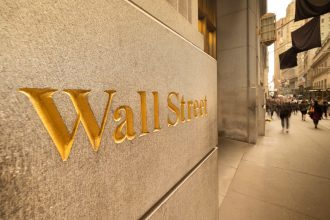Unlock the Editor’s Digest for free
Roula Khalaf, Editor of the FT, selects her favourite stories in this weekly newsletter.
French luxury group Kering has issued a profit warning, making it an exception among the sector’s biggest groups, with falling sales at its leading brand Gucci expected to drag on group revenues.
Paris-based Kering said on Tuesday that sales in the first quarter are expected to fall by 10 per cent year on year on a comparable basis, with those at Gucci — which accounted for two-thirds of group operating income last year — falling by nearly 20 per cent.
“This performance primarily reflects a steeper sales drop at Gucci, notably in Asia Pacific,” Kering said. The group will report first-quarter sales at the end of April.
Gucci is in the middle of a turnaround under new management and a new creative director, Sabato de Sarno, but one that has yet to bear fruit.
De Sarno’s collections have only been in stores since mid-February and Kering said they were “meeting with a highly favourable reception”, adding that availability of the new products will be ramped up in the coming months.
Kering had said last month that it plans to invest in Gucci’s transformation this year, which would be likely to hit margins in 2024.
Although Kering’s woes have centred on Gucci, its other brands, including Saint Laurent and Bottega Veneta, also suffered from falling sales last year.
Its profit warning contrasts with the performance of bigger rival luxury groups LVMH and Hermès, which grew sales in the double digits in their most recent quarter.
As the luxury market slows from several years of record sales growth and profits, the fortunes of the sector’s strongest companies and weakest players are expected to diverge further.
UBS expects luxury sector sales growth to slow to an average of 5 per cent in 2024, after delivering an average of 10 per cent organic growth each year since 2016.
One factor is how much brands cater to so-called aspirational shoppers, who are more vulnerable to economic pressures, as opposed to older, wealthier buyers. Gucci in particular had fostered a younger, more fashion- forward clientele under its star former designer Alessandro Michele.
That proved hugely successful for several years but came under pressure as tastes changed. Once pandemic-era stimulus checks were spent in the US and Europe, and China’s economic outlook grew more uncertain, Gucci’s performance faltered further.
Shares in Kering, which is controlled by billionaire François-Henri Pinault, have fallen almost a quarter over the past year.
“The jury is out on whether the Chinese will like the Sabato De Sarno quiet luxury . . . We are sitting on the fence waiting for more tangible signs that the new Gucci works,” wrote Luca Solca, analyst at Bernstein.
“The bad news on Kering is company specific, but is also a good reminder that consumer confidence and discretionary spend in China is soft.”
Read the full article here




